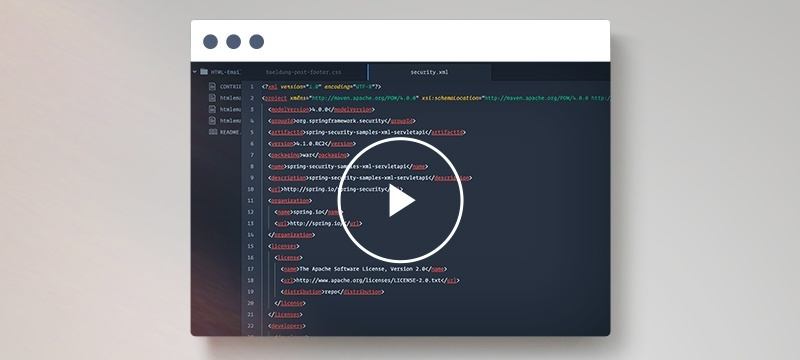1. Overview
MD5 is a widely used cryptographic hash function, which produces a hash of 128 bit.
In this article, we will see different approaches to create MD5 hashes using various Java libraries.
2. MD5 Using MessageDigest Class
There is a hashing functionality in java.security.MessageDigest class. The idea is to first instantiate MessageDigest with the kind of algorithm you want to use as an argument:
MessageDigest.getInstance(String Algorithm)
And then keep on updating the message digest using update() function:
public void update(byte [] input)
The above function can be called multiple times when say you are reading a long file. Then finally we need to use digest() function to generate a hash code:
public byte[] digest()
Below is an example which generates a hash for a password and then verifies it:
@Test
public void givenPassword_whenHashing_thenVerifying()
throws NoSuchAlgorithmException {
String hash = "35454B055CC325EA1AF2126E27707052";
String password = "ILoveJava";
MessageDigest md = MessageDigest.getInstance("MD5");
md.update(password.getBytes());
byte[] digest = md.digest();
String myHash = DatatypeConverter
.printHexBinary(digest).toUpperCase();
assertThat(myHash.equals(hash)).isTrue();
}
Similarly, we can also verify checksum of a file:
@Test
public void givenFile_generatingChecksum_thenVerifying()
throws NoSuchAlgorithmException, IOException {
String filename = "src/test/resources/test_md5.txt";
String checksum = "5EB63BBBE01EEED093CB22BB8F5ACDC3";
MessageDigest md = MessageDigest.getInstance("MD5");
md.update(Files.readAllBytes(Paths.get(filename)));
byte[] digest = md.digest();
String myChecksum = DatatypeConverter
.printHexBinary(digest).toUpperCase();
assertThat(myChecksum.equals(checksum)).isTrue();
}
We need to be aware, that the MessageDigest is not thread-safe. Consequently, we should use a new instance for every thread.
3. MD5 Using Apache Commons
The org.apache.commons.codec.digest.DigestUtils class makes things much simpler.
Let’s see an example for hashing and verifying password:
@Test
public void givenPassword_whenHashingUsingCommons_thenVerifying() {
String hash = "35454B055CC325EA1AF2126E27707052";
String password = "ILoveJava";
String md5Hex = DigestUtils
.md5Hex(password).toUpperCase();
assertThat(md5Hex.equals(hash)).isTrue();
}
4. MD5 Using Guava
Below is another approach we can follow to generate MD5 checksums using com.google.common.io.Files.hash :
@Test
public void givenFile_whenChecksumUsingGuava_thenVerifying()
throws IOException {
String filename = "src/test/resources/test_md5.txt";
String checksum = "5EB63BBBE01EEED093CB22BB8F5ACDC3";
HashCode hash = com.google.common.io.Files
.hash(new File(filename), Hashing.md5());
String myChecksum = hash.toString()
.toUpperCase();
assertThat(myChecksum.equals(checksum)).isTrue();
}
Note, that Hashing.md5 is deprecated. However, as the official documentation indicates, the reason is rather to advise not to use MD5 in general for security concerns. This means we can still use this method if we, for example, need to integrate with the legacy system that requires MD5. Otherwise, we’re better off considering safer options, like SHA-256.
5. Conclusion
There are different ways in Java API and other third-party APIs like Apache commons and Guava to generate the MD5 hash. Choose wisely based on the requirements of the project and dependencies your project needs to follow.
As always, the code is available over on Github.






